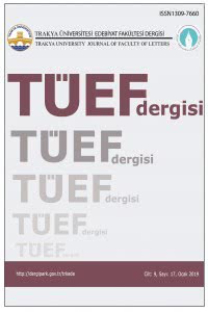Although rewriting master narratives like the Bible and mythology is a wellestablished literary sub-genre which goes back to Ovid and Virgil, it has obtained a newdimension as a challenging literary technique with Postmodernism. In the contemporary literarycanon, there is a tendency to revisit canonical old texts and this literary practice is called“rewriting”. Many authors rewrite these old stories from new perspectives and sometimes evenin more modern contexts. This literary method is full of promise of freshness and novelty for theauthor, the reader, and the critic. Rewriting an older text is to rediscover, redefine, and reinterpret it from a perspective challenging enough to force the reader and the critic to questioneverything they previously knew about the text. It is in this sceptical mood that postmodernistfiction employs the technique of rewriting. By means of rewriting the old texts, authors open up,for mini-narratives, new space previously invaded by grand narratives. With the newly freedmini-narratives come alternative realities that deconstruct the universal reality of grandnarratives. This article aims to analyze the concept of rewriting in the novel genre as apostmodern critic of and challenge to grand narratives. How grand narratives work and howthey are deconstructed through rewriting are analyzed in the example of the comparativeanalysis of the trickster figure Loki from Norse mythology and the rewriting of these myths fromLoki’s perspective in Joanne M. Harris’ The Gospel of Loki. Rewriting in the context of this study isdefined as a conscious, critical, and politically motivated postmodern technique.
İncil ve çeşitli mitlere konu olmuş öykülerin yeniden yazımı, Ovidius ve Vergilius’a dayanan köklü bir edebî alt tür olsa da, Postmodernizm ile alışılmışa meydan okuyan edebî bir teknik olarak yeni bir boyut kazanmıştır. Çağdaş edebiyat kapsamında kanonda kendine yer bulmuş eski metinlerin yeniden ele alınması yönünde bir temayül söz konusudur. Bu edebî pratiğe ise “yeniden yazım” adı verilir. Pek çok yazar, bu eski öyküleri yeni bir bakış açısından, hatta kimi zaman modernize edilmiş bir bağlamda yeniden yazmaktadır. Bu edebî pratik; yazar, okur ve eleştirmen için yenilik vadetmektedir. Eski bir metni yeniden yazmak; okuru ve eleştirmeni bu metne dair daha önceden bildikleri her şeyi sorgulayacak bir bakış açısından hareketle bu metni yeniden keşfetmek, yeniden tanımlamak ve yeniden yorumlamak anlamına gelir. Postmodernizm, yeniden yazım tekniğini bu kuşkucu tutumla uygulamaktadır. Eski metinleri yeniden yazarak yazarlar; üst anlatıların işgalindeki alanlarda mini anlatılar için yer açmaktadırlar. Özgür kılınan mini anlatılar, üst anlatıların evrensel gerçekliğini yıkan alternatif gerçeklikleri beraberinde getirirler. Bu makale, roman türünde yeniden yazım tekniğini üst anlatılara karşı postmodern bir eleştiri ve başkaldırı olarak incelemeyi hedeflemektedir. Üst anlatıların işleyişi ve yeniden yazım tekniğiyle nasıl yapı bozuma uğradıkları; İskandinav mitolojisindeki hilekâr karakter Loki’nin mitlerdeki orijinal karakterizasyonu ile mitlerin yeniden yazımı olan Joanne M. Harris’in The Gospel of Loki romanındaki karakterizasyonunun karşılaştırmalı tahlili üzerinden ele alınmaktadır. Bu makalenin bağlamında yeniden yazım, bilinçli, eleştirel ve politik bir postmodern teknik olarak tanımlanmaktadır.
___
Alferi, Pierre. Chercher une Phrase, Christian Bourgoiséditeur, Paris, 1991.
Barthes, Roland. “From Word to Text”, Image—Music—Text, Stephen Heath (trans.), The Noonday Press, New York, 1977.
Belton, J. H. (ed.). An Encyclopaedia of Norse Mythology, Project Gutenberg, 2012.
Bertens, Hans, The Idea of the Postmodern: A History, Routledge, London, 1995.
Brodeur, A. G., Prose Edda by Snorri Sturluson, Enhanced Media, Los Angeles, 2016.
Harris, J. M., The Gospel of Loki, Gollancz, London, 2014.
Kristeva, Julia, Desire in Language: A Semiotic Approach to Literature and Art, (Ed. Leon S. Roudiez, Transl. Thomas Gora, Alice Jardine and Leon S. Roudiez), Columbia University Press, New York, 1980.
Lyotard, Jean François, The Postmodern Condition: A Report on Knowledge, Manchester UP, Manchester, 1984.
McClinton, Jennifer Anne, “Rewriting Empire: Rewriting Canonical British Texts from a Postcolonial Perspective”, (Diss.), Oklahoma: University of Oklahoma, Oklahoma, 2001.
Moi, Toril (ed.), The Kristeva Reader, Columbia University Press, New York, 1986. Oxford Dictionary of English. Definition of Rewrite. https://en.oxforddictionaries.com/definition/rewrite
Rushdie, Salman, The Satanic Verses, The Consortium, New York, 1988.
Spivak, Gayatri C., (1985). “Three Women’s Texts and a Critique of Imperialism”, Critical Inquiry, Vol: 12, 1985, pp. 1-28.
Von Schnurbein, Stefanie, “The Function of Loki in Snorri Sturluson's ‘Edda’”, History of Religions, Vol: 40, 2000, pp. 109-124.
